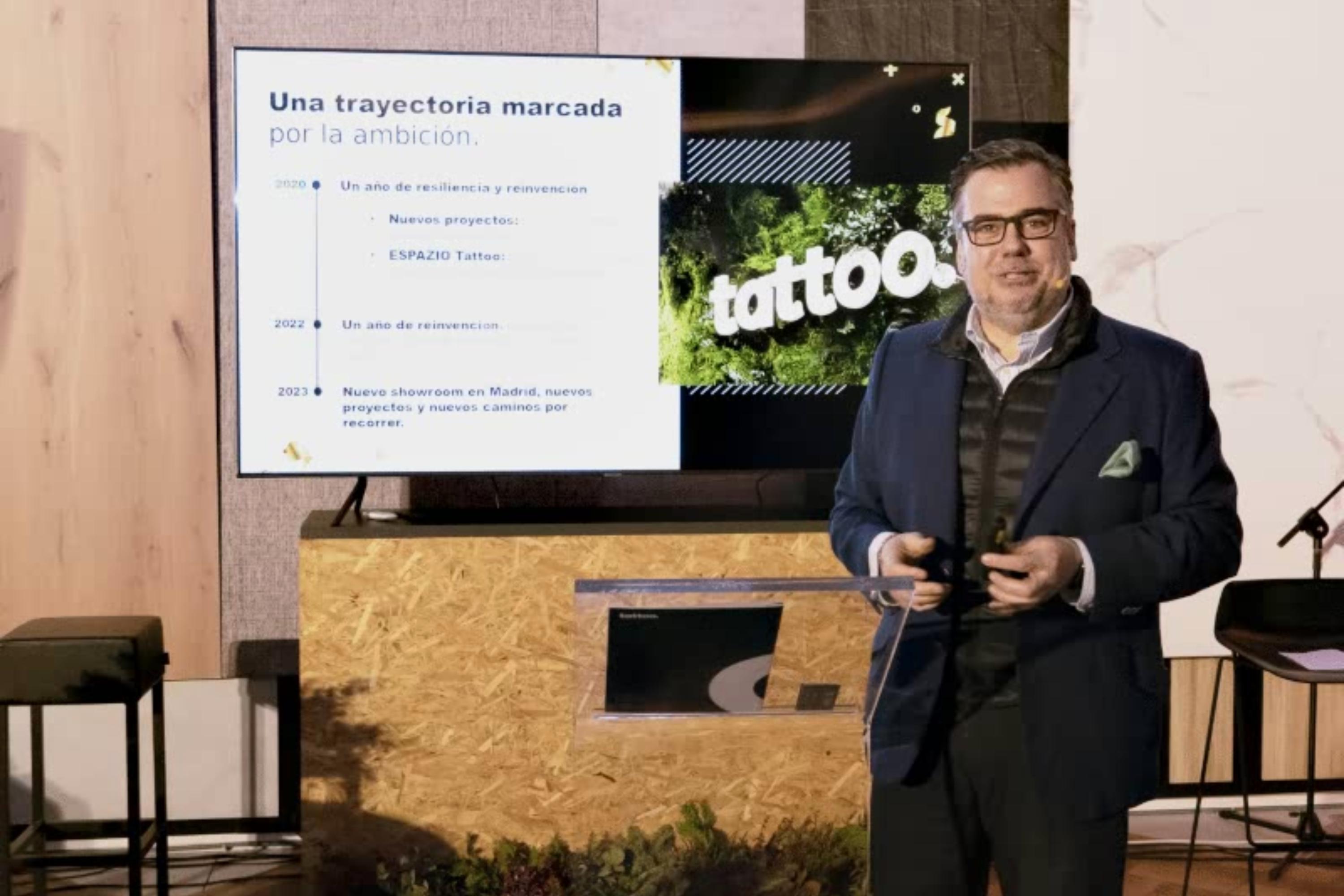
Latest information

Tattoo Contract: Personalised approach, international vocation and solution-oriented DNA
Tattoo Contract, dedicated to the integrated management of contract projects for hotels, retailers, offices, large retail outlets, residential buildings and public spaces, also undertakes initiatives in the field of the creation and manufacture of innovative materials from industrial by-products.
Tattoo Contract's journey began in 2010 in A Coruña, following a crisis that led its CEO, Pablo García-Bodaño López, to lose his job, which prompted him to take advantage of his experience in the sector as a director of the Tecam group and his ambition to democratise access to contracting by creating this company that today is a reference in the sector for the development of projects at an international level.
Since then, the company has experienced continuous growth, forging a solid track record in customised space equipment. Their dedication and commitment have brought together a highly qualified transversal team, driving a constant evolution, totally focused today on sustainability and circular economy. What really sets them apart from their competitors is their international vocation and their "solution DNA", that ability to offer the client a turnkey project through a flexible work process that is developed in several stages.
Collaborative spirit
For its CEO, one of the keys to Tattoo's success is to have the flexibility to be big or small, and for this it is essential to establish synergies with the best professionals in each field to be able to call on them if the project requires it, and this is what he calls the "Tattoo tribe". "We do very large projects, although there are not many of us in the company," explains García-Bodaño, "what we do is to unite synergies. Although we also work with other places in Spain and internationally, we do it more often with industrialists between Galicia and Oporto, on the Atlantic axis, as the proximity allows us to offer that quality and have an optimal supervision capacity".
This flexibility allows them to rely on the most qualified professionals in each area: specialised carpentry companies, specialised lighting and engineering companies, outdoor furniture companies, new materials, etc. "Tattoo is in charge of getting the project wherever it is and giving it common sense and bringing it down to earth", since, as García-Bodaño points out, "in the end all projects are aspirational and although the renders can withstand anything, you have to apply sense and adjust it to a budget. To do this, you have to know a lot about materials and provide alternatives, which is why teamwork is fundamental".
Project highlights
Tattoo Contract would not be what it is today if it were not for those projects that undoubtedly marked a before and after throughout its career, such as the Sheraton Hotel in Doha (Qatar), an emblem in the city and a project that went from being a budget of a table and a chair to a 400-room hotel, or the ceilings of the metro in the same city, a spectacular project for which they competed with several multinationals, consisting of carbon fibre solutions that they developed with Galician industrialists who worked with composite.
They were also responsible for equipping six train stations in Saudi Arabia, in the middle of the desert, "we learned a lot, especially in terms of logistics, as we moved everything from here," explains the CEO.
Another crucial project for Tattoo was also developed in the Dominican Republic, for the Spanish hotel chain Lopesan, with a budget of 9 million dollars that they had to execute in a record time of 6 months from the time they obtained the renderings and which included all kinds of spaces: casino, spa, themed restaurants, discotheques, etc. In the words of García-Bodaño, "it is an example of our ability to respond to the client's needs, we are a very large digestive system, we are very versatile".
Commitment to sustainability
Tattoo Contract's contribution to the design-innovation-sustainability tandem is mainly materialised in two initiatives: the MIH (Material Innovation Hub) and WIM Studio.
MIH consists of a library and consultancy specialising in materials, sustainability and circular design, promoted together with the designer Noemí Cortizas to support companies and designers in the realisation of product and service concepts, making available to them an exclusive catalogue of their own innovative materials, manufactured from by-products of organic and inorganic materials, promoting the circular economy and R&D&I to achieve the highest standards of efficiency, resistance and durability.
What may seem like waste to most, to WIM Studio is the perfect raw material for creating customised space furnishing solutions, an indispensable factor in the transformation of interior design and architecture towards a future that is totally respectful of the environment. At WIM Studio they recycle and innovate to reduce waste and reduce dependence on non-renewable materials, resulting in the creation of innovative and resistant pieces that make a difference. In short, it is a workshop dedicated to the creation of prototypes to give a second life to waste, thus turning a problem into an opportunity. The manufacture of new materials and solutions from by-products of various industries, based on the circular economy and using recycling and innovation to create unique and customised pieces are its raison d'être.
They also collaborate with companies such as Ilunion to give a second life to the group's textile waste in the form of equipment and furniture in their different companies and with the Driada Vida Universe platform, which helps to generate wealth in rural areas, focusing research and innovation on preserving the environment.
In the short term, Tattoo Contract aims to consolidate its position in Madrid with the exhibition spaces it already has, but above all in promoting this new project framed in the field of sustainability, which complements Tattoo and of which Pablo is also CEO.